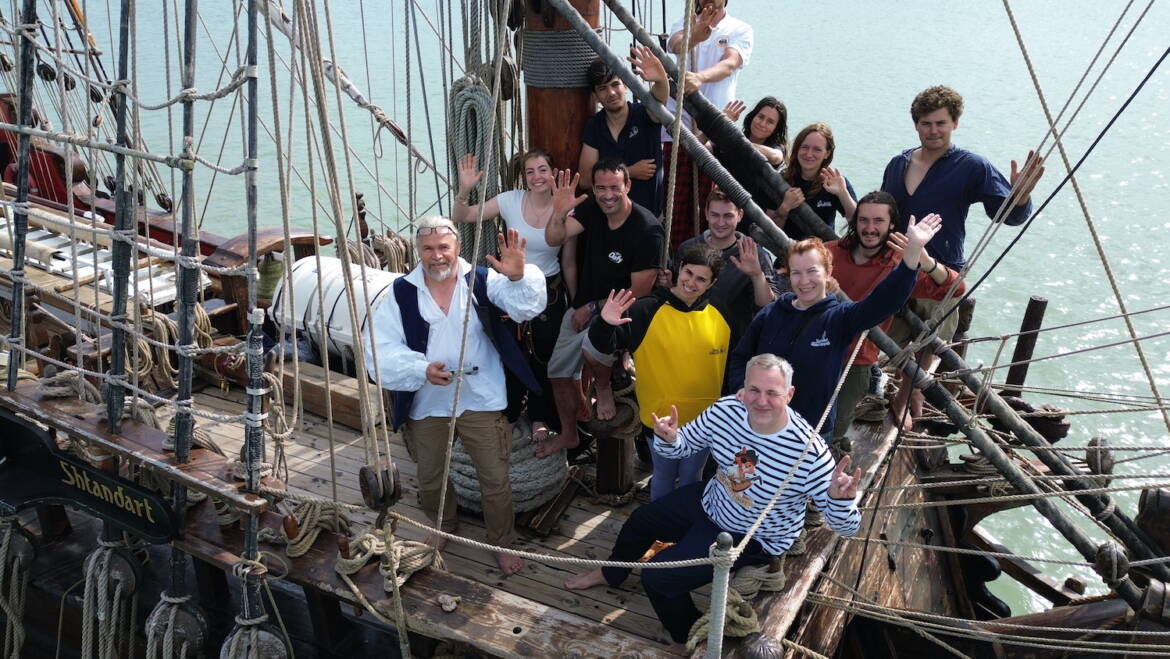1/09/2025
Recently, the Court of the European Union refused to even consider the plea of the captain and builder of the sailing ship Shtandart — a plea to spare this historic vessel from the weight of European sanctions. The Court’s reasoning was not about the ship itself, but purely procedural: it declared the complaint “inadmissible” and stated it had no authority to hear the case. The official words can be found here.
But behind those sterile legal formulas lives another reality — the reality of a wooden ship breathing with history, and a crew of volunteers who, for over a year now, have been stranded at sea, unable to enter a welcoming harbor.
Shtandart is no ordinary vessel. She is a painstakingly crafted reconstruction of an 18th-century frigate, built with love and with respect for maritime traditions. For more than 25 years, she has carried an international crew across oceans, joining regattas, festivals, and — most importantly — opening her deck to young people from many nations. Onboard, they learn not only how to set sails or tie knots, but how to listen, to trust, and to live in harmony with one another.
This ship does not trade in oil. She does not bear arms. She does not participate in wars. Her mission is far simpler and far more precious: to teach, to unite, to inspire.
Thousands of young men and women from across the world have passed through the “school of life” on her deck. They learned to work as one, to overcome fear, to see one another not as strangers but as fellow sailors. Why then must the Shtandart be punished? Is it merely because of the passport of her builders? Or because bureaucracy has no patience to distinguish the innocent from the guilty?
When Europe’s sanctions closed the ports to the Shtandart, the ship itself did not suffer — people did. The captain, the crew, the volunteers, the students who dreamed of learning the sea — all of them have been left adrift, their hopes anchored in uncertainty.
“We are not a flag. We are sails. We are a crew. We are about peace,” the sailors of the Shtandart say.
Yes, she was built in Saint Petersburg. But long ago, the Shtandart became something greater than a national vessel: she became a floating home without borders, where the only citizenship that matters is courage, teamwork, and an open heart.
There is no justification for punishing this ship. She threatens no one. What she carries in her sails is not division or fear — but friendship, love, and the spirit of peace itself.
